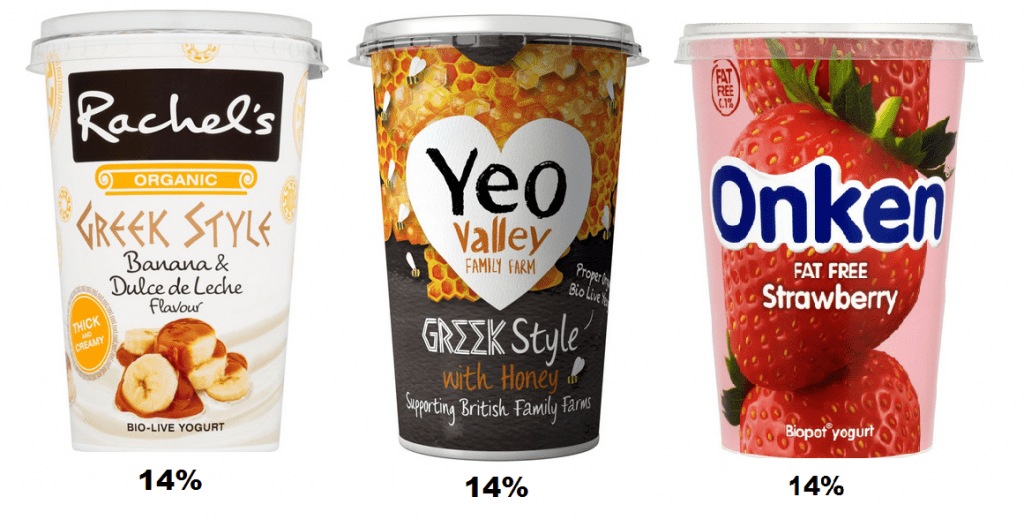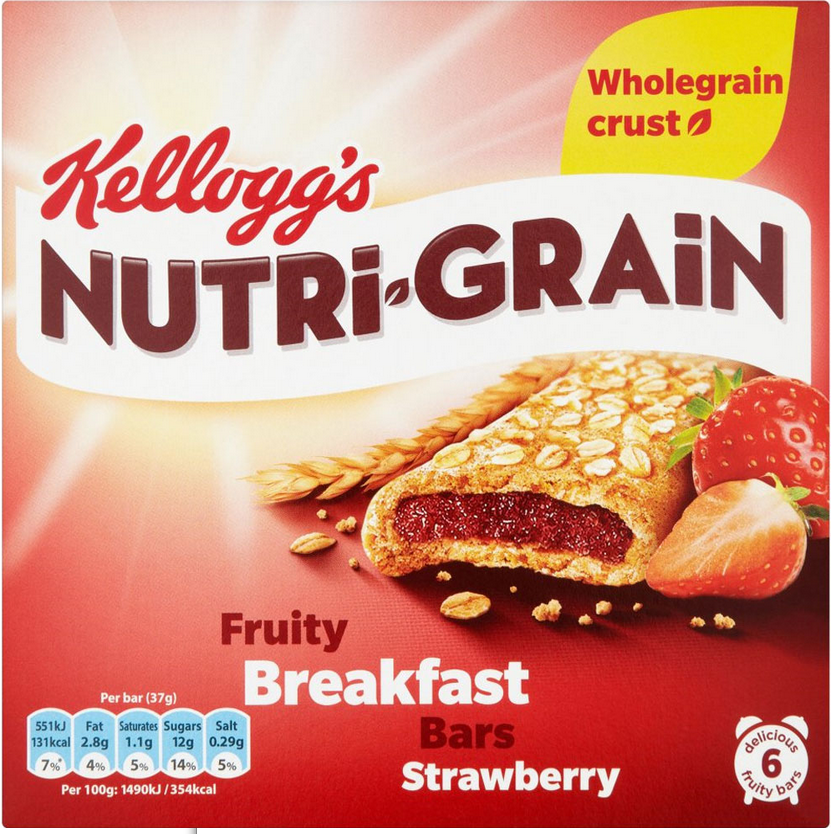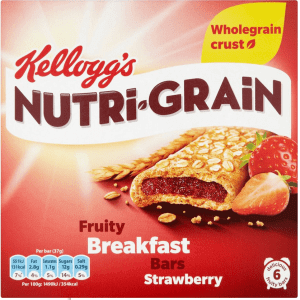Before we discuss the offending food choices, let’s discuss whether breakfast is necessary at all.
Should I Eat Breakfast?
As many as 30% of us admit to skipping breakfast.
Studies show that people who eat breakfast are less likely to be overweight and tend to be more active.
However, this does not mean that any breakfast is better than no breakfast, or that by skipping breakfast you will gain weight.
It is believed that a high protein breakfast is the most effective way to lose weight or to avoid further weight gain.
Whether breakfast is right for you, evidence supports the need for breakfast in school children.
Below are the results of the latest research on the topic of eating breakfast.
Reasons To Skip Breakfast
- A study showed that those who identify themselves as an “evening” person tended to skip breakfast more than a “morning” person, but had no increase in hunger levels.
- This makes sense, as a main reason given for not eating breakfast is that they don’t feel hungry in the first place.
- The “evening” person didn’t necessarily have worse eating habits later in the day, nor did they consume more calories overall.
- Another showed that people who skipped breakfast ate a bigger lunch (+140 calories) but had the same size dinner as those who ate breakfast. This means over the day they consumed on average 400 calories less having skipped breakfast.
- A review of the literature found that while skipping breakfast is associated with weight gain, it is not necessarily a cause of weight gain.
Reasons To Eat Breakfast
- People who skip breakfast tend to have a higher BMI and waist circumference than those who eat breakfast.
- Children perform better in school if they eat breakfast and are less likely to be overweight. (The most significant factor in a child eating breakfast was whether the parent ate breakfast.)
- A high protein breakfast reduced daily hunger and prevented body fat gains in overweight/obese adolescents.
- Those who ate breakfast consumed more calories in the day but were less likely to be overweight.
- While skipping breakfast can lead to weight loss, it was shown to increase cholesterol levels compared to those eating cereal or oatmeal.
- Although not the cause, skipping breakfast was associated with more smoking and drinking, higher BMI and infrequent exercise.
- High Carbohydrate breakfasts had a negative effect on cognitive performance. High Fat breakfasts had a positive effect on cognitive performance.
In conclusion, if you don’t feel like eating breakfast then you are unlikely to gain weight by skipping it, but if you are hungry then you should eat breakfast.
If your diet is high in carbohydrate it may negatively effect your concentration. To be at your best for work you should have more fat for breakfast.
If you want to lose weight, a high protein breakfast will reduce hunger and limit body fat gains.
Unhealthy Breakfast Choices
Flavoured yoghurt
Most yoghurts, particularly the ones that make a point of claiming they are fat free or low calorie, have added sugar or sweeteners.
These products from Rachel’s, Yeo Valley and Onken are all 14% sugar.

Other yoghurts, aimed at the weight loss market, contain sweeteners, which makes your body crave sugar. The Weight Watchers and Activia yoghurts actually contain sweeteners and added sugar, if you read the label.
They are LOW protein, LOW or NO fat, and HIGH carbohydrate.
Natural Fruit Juice
Fruit juice has most of the fiber taken out, and is nearly all sugar.
All four of these have 10% sugar and minimal fiber. Apple, Pineapple and other fruit juice also contain high sugar. A 250ml glass contains 25 grams of sugar. If you want the vitamin benefits of fruit, eat fruit.

They are LOW protein, LOW or NO fat, and HIGH carbohydrate.
Breakfast Cereal
We’ve become so crazed about “Low Fat” that we’re happy to eat a bowl of carbohydrate. You don’t need this amount of quick release energy to drive to work or sit at a desk.
High carbohydrate breakfasts can impair cognitive performance. It is also low in fat, and low in protein. Yes, you get protein from the milk, but there are far better options for breakfast.

They are LOW protein, LOW or NO fat, and HIGH carbohydrate.
Cereal Bars
Just when you thought cereal was the worst thing to happen to mornings, along came cereal bars. Without the milk, these contain almost no protein and are high in carbohydrate.
The Nutri-Grain bars pictured here contain six types of sugar, less than 2 grams of protein and 3 grams of fat. (you’d need to eat 10 bars to get the same protein as two eggs).

They are LOW protein, LOW or NO fat, and HIGH carbohydrate.
If you are guilty of eating any of these unhealthy breakfasts then check out the other part of this article, Five Healthy Breakfast Choices.
References
[1] Nutrient intake, diet quality, and weight/adiposity parameters in breakfast patterns compared with no breakfast in adults. O’Neil, Nicklas, Fulgoni
[2] Breakfast habits, nutritional status, body weight, and academic performance in children and adolescents. Rampersaud, Pereira, Girard, Adams, Metzl
[3] A high-protein breakfast prevents body fat gain, through reductions in daily intake and hunger, in “Breakfast skipping” adolescents. Leidy, Hoertel, Douglas, Higgins, Shafer
[4] A cross-over experiment to investigate possible mechanisms for lower BMIs in people who habitually eat breakfast. Reeves, Huber, Halsley, Villegas-Montes, Elgumati, Smith
[5] Skipping breakfast: morningness-eveningness preference is differentially related to state and trait food cravings. Meule, Roeser, Randler, Kubler
[6] Effect of skipping breakfast on subsequent energy intake. Levitsky, Pacanowski
[7] Skipping breakfast leads to weight loss but also elevated cholesterol compared with consuming daily breakfasts of oat porridge or frosted cornflakes in overweight individuals. Geliebter, AStbury, Aviram-Friedman, Yahav, Hashim
[8] Eating breakfast enhances the efficiency of neural networks engaged during mental arithmetic in school-aged children. Pivik, Tennal, Chapman
[9] Breakfast skipping and change in body mass index in young children. Tin, Ho, Mak, Wan, Lam
[10] Breakfast skipping and health-compromising behaviors in adolescents and adults. Keski-Rahkonen, Kaprio, Rissanen, Virkkunen, Rose.
[11] Belief beyond the evidence: using the proposed effect of breakfast on obesity to show two practices that distort scientific evidence. Brown, Bohan Brown, Allison
[12] Breakfast and cognition: sixteen effects in nine populations, no single recipe. Zilberter, Zilberter.

